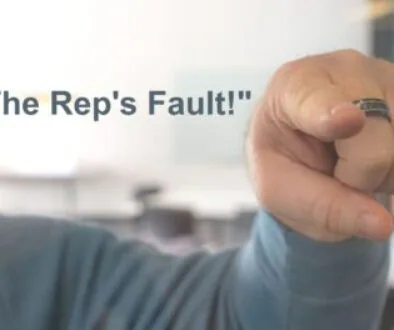Social Media and the Aspiring or Veteran Medical Sales Rep
During breakfast this morning, my wife C.J. asked, “Do you think corporations have the right to ask job candidates to reveal their Facebook page?” She was surprised by my answer.
I said, “Yes. Companies have the right to ask. Job candidates also have the right to say no, but that may not be a good move with respect to getting hired.”
How a sales candidate uses Facebook or responds to questions about Facebook says something about them and their judgment. I was interviewing candidates to fill a sales position for a small medical device company. After reviewing over 100 resumes, I narrowed the candidate pool to five. Following a round of telephone interviews, there were three finalists I planned to bring in for live interviews, but first I decided to check each candidate’s Facebook page.
One candidate did not have a Facebook page. One could interpret it two different ways. Perhaps the candidate viewed social media as a big time-waster or the flip side could be that the candidate didn’t recognize the potential value of social media. The lack of a Facebook page did not affect how I considered the candidate.
Another candidate had a minimalist presence on Facebook. She gave little information about herself other than where she lived, where she attended college and her interests which included aerobics and a passion for cooking. I was impressed that she used a professional head shot for her profile picture, which suggested to me that she favored a professional approach to things. Her page had little impact, but it did no harm either.
When I located the third candidate on Facebook, I said out loud, “You’ve got to be kidding me!” Her profile picture displayed a picture of a girl wearing a wet t-shirt standing on top of a bar surrounded by other girls in wet t-shirts and a cadre of obviously drunken admirers toasting the ladies on the bar. While this left a bad impression, I read through some of her FB posts in hopes of finding some redeeming qualities. Sadly, most of her posts were laced with poor grammar and F-bombs…lots of F-bombs! Did this candidate’s Facebook page say something about her judgment and character? It did for me. She was out!
What about those of you who already have the job…do you think you’re free to post whatever you want on your Facebook or LinkedIn pages? Oh sure, you have activated all of the privacy settings. No one will see anything you post except those who you allow, right? Are you willing to bet your job and business on that?
Anything you post online, either in a website, forum, or yes—social media site such as Facebook, is for all intensive purposes in the public domain. All it takes is one person who has access to your information to pass around some less than savory information about you or a picture you wish was never taken and your reputation is toast.
A great word of advice is to never post any information online that you would not want a customer or someone from your company to see. Yes, you’re entitled to your privacy, but online, privacy doesn’t exist, regardless of how you create your Facebook privacy settings.
In an era of increased scrutiny for corporate behavior and regulatory compliance, assessing good judgment in potential medical sales representatives is essential. Good judgment says that when you’re competing for a desirable medical sales job, you’re prepared for questions about your social media habits and behaviors, including, “Would you mind if I took a look at your Facebook page?” Do you have the right to say no? Of course, but your interests will be best served if you can do so without it looking like you’re trying to hide something. From an interviewer’s perspective, I think it’s a fair question in terms of testing a candidate to see how well he or she handles stress in a critical sales situation (which is what a job interview is!).
What do you do when one of your customers sends you a “friend request?” Will your page reveal anything about you that may change the customer’s perception of you? You could ignore the friend request or just say no, but that sends a message as well, doesn’t it, such as, “I don’t want to be your friend!”
If there is anything on any of your social media sites that you would not be comfortable sharing with everyone you know—get rid of it. Don’t be misguided by thinking that your right to privacy protects you. When it comes to getting hired, keeping customers, or keeping your job, it’s too much to risk.


